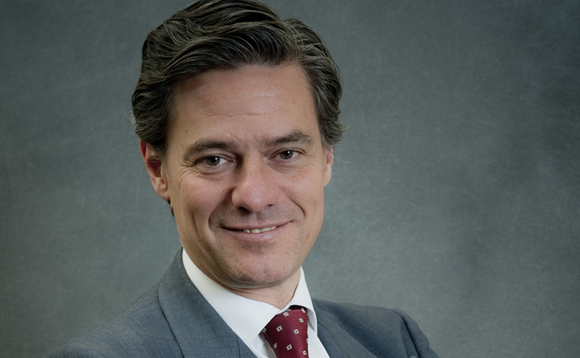
Q&A: Carlos Lavilla, Ascri president

Carlos Lavilla was appointed president of Spain's industry association this year. Ahead of the upcoming unquote" Iberia report, Lavilla speaks to Amy King about renewed international enthusiasm in the Spanish market and how GPs focusing on Latin America might just be missing a trick
Sentiment towards Spain seems to be improving among international investors and several GPs have described it as one of the most attractive markets in Europe at the moment. Do you think international GPs are about to refocus and set their sights on Spain?
Yes, definitely. Blackstone's appointment of an Iberian managing director shows this trend. Many international managers such as Bain & Company, HIG Capital, KKR or Trilantic have put Spain in the spotlight for their new investments. Spanish GPs are also making a huge effort to adapt to the current crisis, resulting in increasingly experienced and qualified management teams.
A few international GPs have offices out here, while others are active in Spain from their London offices and are coming down more frequently to Spain to carry out deals. As Blackstone did, some others are exploring the possibility of opening an office here. So yes, there is a shared view that there are very good opportunities here in Spain at the moment.
Your mandate as Ascri president runs until 2014. What are your predictions for the Spanish private equity market in that time frame?
I think the market is going to evolve positively over the coming two years. General consensus is that the next few years will be especially attractive for investment in Spain. We are expecting the volume and value of investments to increase and we are also expecting an increase in divestments from existing funds.
This is because Spanish private equity is a very good opportunity at the moment for three reasons. The first reason is of a macroeconomic nature. Spain has obviously gone through a very difficult time in the past few years, but during 2012 there were a number of far-reaching structural reforms. Those reforms are making the country much more competitive. You can see that in the evolution of the current account balance, which has finally turned positive for the first time in 15 years.
The government has already finished the recapitalisation of the savings banks, and that has removed a lot of uncertainty associated with the Spanish market. It has also restored credit to the system. The result of all this is that after two years of contraction, Spain is ready to start growing again and this is widely recognised. There is no question that the country is going to grow again, it is just a question of when and, for private equity investors (who take a 10-year view), knowing exactly when the country will grow again is not important. What's important is knowing that it will grow again.
The second reason is the quality of companies we have in Spain and the fact that they need equity. Part of the reason the country is becoming more competitive is because they are now exporting much more than they used to and they have internationalised, but to continue that strategy they need equity. Without doubt the biggest challenge is to consolidate confidence in the medium-term outlook for the Spanish economy and restore the normal flow of credit to businesses.
The third reason is that the situation in the market is such that you can get really good deals now, with adjusted asset prices. The scarcity of private equity money means that for those who have it, the opportunity to do really great deals is there.
Last year, telecommunications firms attracted the largest investments in Spain. Which sectors do you think will present the most promising opportunities in 2013?
In the current situation, the sectors that seem more attractive are those that are counter-cyclical and easy to internationalise, such as information technology, health and medicine, energy and biotechnology.
But sectors of a cyclical nature are also very interesting at the moment, as one is able to close transactions at the bottom of the economic cycle and benefit from the recovery.
In the absence of a booming domestic market, many Spanish players have opted to back local firms with Latin American ties. Do you think investors will continue to follow this strategy?
We have seen a couple of GPs announcing that strategy. It is a sensible decision in that Spain has always had strong ties with Latin America for several reasons, and Spanish companies have been successfully exporting and doing business there for two decades at least. Certainly, if an opportunity arises in Latin America, it is only natural that Spanish firms try and gain a portion of that.
But that shouldn't mask that there are also good opportunities here in Spain. I don't like that mentality: "There is nothing good happening in Spain, so I will go to Latin America." That is not the case. Go to Latin America if there is a good opportunity there, sure, but for the people with the right track record and investment policy, there are also very strong opportunities lying ahead of us here in Spain.
Latest News
Stonehage Fleming raises USD 130m for largest fund to date, eyes 2024 programme
Sponsor acquired the public software group in July 2017 via the same-year vintage Partners Group Global Value 2017
Stonehage Fleming raises USD 130m for largest fund to date, eyes 2024 programme
Czech Republic-headquartered family office is targeting DACH and CEE region deals
Stonehage Fleming raises USD 130m for largest fund to date, eyes 2024 programme
Ex-Rocket Internet leader Bettina Curtze joins Swiss VC firm as partner and CFO
Stonehage Fleming raises USD 130m for largest fund to date, eyes 2024 programme
Estonia-registered VC could bolster LP base with fresh capital from funds-of-funds or pension funds








